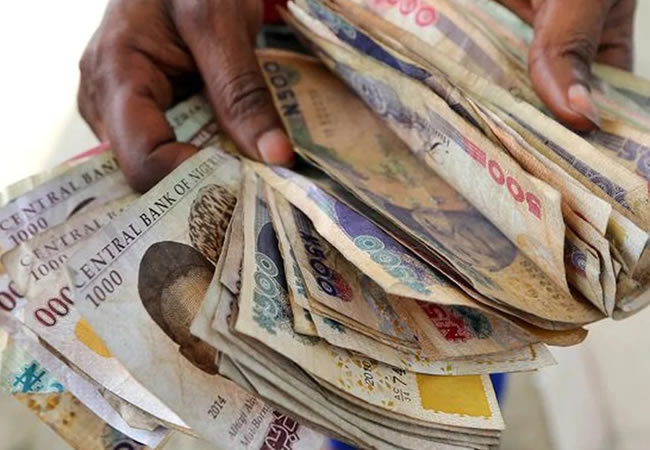The ongoing paucity of US dollars caused the Naira to weaken versus the dollar. Despite Nigeria’s reliance on imports, the willing buyer, willing seller FX mechanism has been put to the test by rising demand for foreign exchange.
Information from FMDQ Securities Exchange indicates that in the Nigerian Autonomous Foreign Exchange Market (NAFEM), the value of the naira decreased by 0.8% to N1,478.11. In order to satisfy unseen requests, FX auction sales to informal currency dealers have been delayed, which has resulted in a worsening of the exchange rate on the parallel market.
The Central Bank of Nigeria’s (CBN) ability to further infuse US dollars into the foreign exchange markets has been hampered by the fluctuation of exchange rates during the last several weeks. Analysts claimed it’s clear now that Naira’s previous victories were driven by FX liquidity supported by the CBN.
Though, the apex bank denied backing up the local currency, emphasizing a willing buyer, willing seller FX model has come to stay despite import dependent nature of the Nigerian economy. worsening exchange rate is expected to drive inflation. higher further and unless it is tamed, consumer price index may persist up until second half of the year.
“At present, the major worries remain inflation and the exchange rate, with the naira’s journey to price discovery fraught with volatility and wild swings, particularly in the last four months.
“After a plunge to a record low of ₦1,950/$ at the parallel market, the currency staged a dramatic comeback, rallying by 46.2% to ₦1,030/$ by April 17, to become one of the world’s best-performing currencies in recent weeks”, Agusto Ratings said in its latest commentary note.
Analysts noted that the turnaround followed the aggressive tightening stance of the CBN, with policy rate hikes in February and March (of a combined 600 basis points), the success in clearing the backlog of FX obligations and a flurry of directives, particularly the ban on foreign currency denominated collateral for naira loans.
“The CBN has also intervened to improve liquidity and higher interest rates have attracted ‘Hot Money’, which bolstered the naira and gave the apex bank more ammunition to influence the market. We believe increased inflows from foreign portfolio investors attracted by higher interest rates as a key factor in the naira recovery.
“Nonetheless, there is a sense of caution that these are likely existing investors familiar with the Nigerian market, rather than a surge of new money. Another point of contention is the central bank’s commitment to a free-floating exchange rate”, Agusto Rating stated in its update.
It added that despite pronouncements of a “willing buyer, willing seller” market, the bank has resumed selling dollars to licensed FX dealers with a limited spread of 1.5%.
The naira’s rally has also coincided with a 6.5% depletion of the CBN’s external reserves since March 2024, leading to suggestions that the Apex Bank has been supporting the naira more than previously disclosed and raising questions about the sustainability of the naira’s rally.
“While the CBN maintains it is not defending the naira, reserves depletion has stoked scepticism and renewed speculative activity, which is at the core of the resurgent pressure on the naira in the last week. In the eight days between April 17 and April 25, the naira lost 28.9% at the parallel market – from ₦1,030 to ₦1,450, respectively, despite the CBN’s intervention with $10,000 to each of the 1,583 Bureau de Change operators at a rate of N1,021/$”, Agusto stated.











